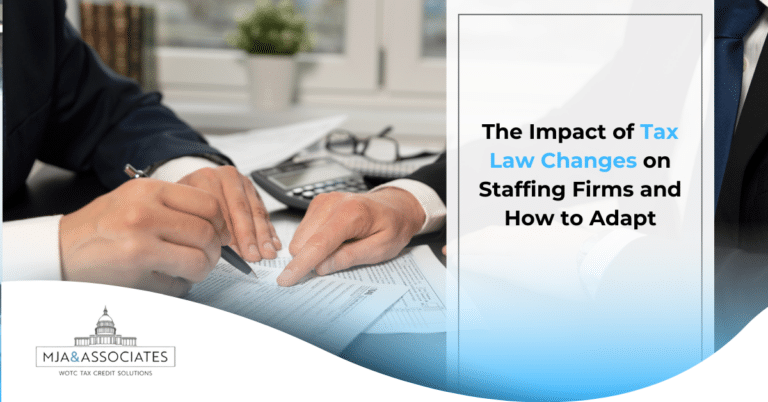Tax law changes impact your staffing firm. Examples in 2024 include proposed amendments to corporate tax rates, alterations in tax deductions and credits, and changes in depreciation rules. As a result, you must adapt to these changes to remain compliant.
Tax law changes can affect your staffing firm’s tax strategies. For instance, a comprehensive review of your business structure, an analysis of cash flow implications, and an evaluation of tax deduction opportunities can impact your firm’s bottom line. Therefore, staying current on tax law changes and modifying your tax strategies is essential.
Learn about the impact of tax law changes on staffing firms and how to adapt.
Changing Compliance Requirements
Tax law changes can introduce modifications to your staffing firm’s documentation processes, additional reporting obligations, or new forms to file. Adapting your firm’s internal processes to these new requirements and streamlining your reporting procedures help maintain compliance.
Changes in Tax Rates
Changes in tax laws can impact your staffing firm’s federal and state tax rates. Staying informed about these changes helps analyze the impact on your firm’s financial statements, optimize tax planning, and accurately calculate your firm’s tax liabilities.
Changes to Tax Deductions and Credits
Tax law changes that impact your staffing firm’s tax deductions, and credits modify the bottom line. Staying current on these changes helps identify available tax deductions and credits to optimize tax-saving opportunities.
Tips to Stay Updated on Tax Law Changes
Keep your staffing firm updated on tax law changes by attending seminars and consulting tax experts:
- Learn how tax law changes impact your firm.
- Develop strategies for tax law compliance.
- Identify tax-saving opportunities.
Partner with MJA & Associates
MJA & Associates monitors legislative updates to offer insights and deliver personalized consulting for staffing firms to ensure compliance and optimize tax savings. Contact us to learn more today.




